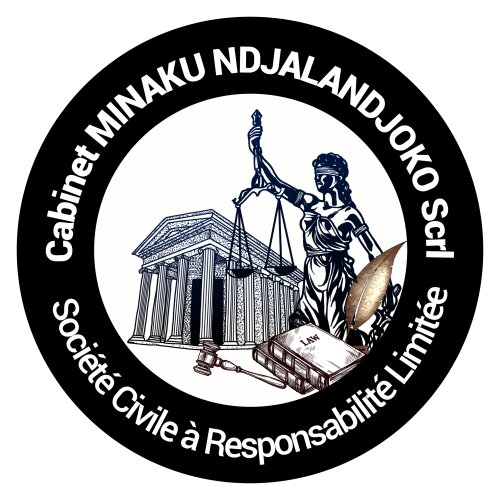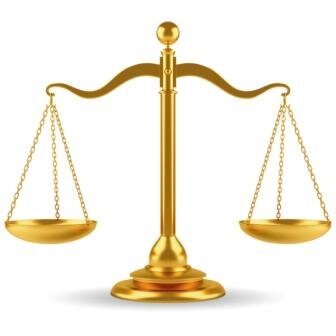Best Employer Lawyers in DR Congo
Share your needs with us, get contacted by law firms.
Free. Takes 2 min.
Or refine your search by selecting a city:
List of the best lawyers in DR Congo
About Employer Law in DR Congo
Employer law in the Democratic Republic of Congo (DR Congo) encompasses a wide array of regulations governing the relationship between employers and employees. It covers areas such as employment contracts, working conditions, health and safety, anti-discrimination, and dispute resolution. The legal framework aims to ensure fair treatment for employees while also providing a structured process for employers to follow in matters such as hiring, termination, and workplace management. Employers are required to adhere to the Congolese Labor Code, which outlines fundamental rights and obligations.
Why You May Need a Lawyer
There are several scenarios where individuals or businesses might need legal assistance in the realm of employer law in DR Congo:
- You are facing a dispute over an employment contract or termination terms.
- Your workplace rights are being violated, including issues related to wages, safety, or discrimination.
- You need guidance on complying with local labor laws to avoid potential legal issues.
- You are confronted with union-related challenges or negotiations.
- There are allegations of workplace harassment or unfair labor practices.
- You require assistance in drafting legal employment documents or contracts.
Local Laws Overview
The key aspects of employer law in DR Congo are governed by the Congolese Labor Code. Important elements include:
- Employment Contracts: All employment relationships should be formalized through written contracts that specify the terms and conditions of employment.
- Minimum Wage: The law stipulates the minimum wage levels employees should receive, which can vary based on industry and location.
- Work Hours and Overtime: There are regulations concerning the maximum number of working hours per week and compensation for overtime.
- Health and Safety: Employers are mandated to provide a safe working environment and comply with health standards.
- Termination and Redundancy: Certain procedures must be followed for lawful termination or redundancy, including notice periods and severance pay.
- Dispute Resolution: The law outlines processes for resolving disputes through labor courts and mediation.
Frequently Asked Questions
What is the legal minimum wage in DR Congo?
The minimum wage in DR Congo varies by sector and is subject to regular updates by the government. It is important to check the latest regulations applicable to your industry.
Are employment contracts mandatory?
Yes, written employment contracts are mandatory, and they must specify key terms of employment such as duration, job description, remuneration, and working hours.
How are workplace disputes resolved?
Disputes can be resolved through negotiation, mediation, or by taking the matter to a labor court. Each option has its own procedures and requirements.
What constitutes unfair dismissal?
Unfair dismissal occurs when an employee is terminated without a valid reason, or in violation of legal procedures outlined in the employment contract or labor laws.
How much notice must employers give before terminating an employment contract?
The required notice period can vary depending on the employee's length of service and the terms specified in the employment contract. Typically, longer periods are required for those with longer service.
What are the standard working hours in DR Congo?
The standard working hours are typically 40 to 45 hours per week, depending on the specific industry regulations.
Are employees entitled to paid leave?
Yes, employees are generally entitled to annual paid leave, sick leave, and maternity leave, with specific entitlements defined by the law and employment agreements.
What regulations exist for employee health and safety?
Employers are required to adhere to national standards for health and safety, providing a safe workplace and ensuring that equipment and practices meet legal requirements.
Is there protection against workplace discrimination?
Yes, discrimination based on race, gender, religion, or other protected categories is prohibited under the labor laws of DR Congo.
How can employees report violations of labor laws?
Employees can report violations to the labor inspection office or seek legal advice to pursue claims through the appropriate channels.
Additional Resources
For additional guidance, consider consulting the following resources:
- Congolese Ministry of Labor and Employment - Office for Labor Inspection
- National Trade Union Confederations
- Local Chambers of Commerce
- Legal aid organizations that specialize in labor law
Next Steps
If you need legal assistance related to employer issues in DR Congo, consider taking the following steps:
- Identify the specific legal issues or questions you have related to employment law.
- Gather all relevant documents, such as employment contracts, correspondence, and evidence of any disputes or violations.
- Reach out to a qualified lawyer or legal professional who specializes in labor and employment law in DR Congo.
- Consider contacting local labor offices or legal aid services for initial guidance or resources.
- Prepare for consultations by noting down questions and the outcomes you wish to achieve.
Lawzana helps you find the best lawyers and law firms in DR Congo through a curated and pre-screened list of qualified legal professionals. Our platform offers rankings and detailed profiles of attorneys and law firms, allowing you to compare based on practice areas, including Employer, experience, and client feedback.
Each profile includes a description of the firm's areas of practice, client reviews, team members and partners, year of establishment, spoken languages, office locations, contact information, social media presence, and any published articles or resources. Most firms on our platform speak English and are experienced in both local and international legal matters.
Get a quote from top-rated law firms in DR Congo — quickly, securely, and without unnecessary hassle.
Disclaimer:
The information provided on this page is for general informational purposes only and does not constitute legal advice. While we strive to ensure the accuracy and relevance of the content, legal information may change over time, and interpretations of the law can vary. You should always consult with a qualified legal professional for advice specific to your situation.
We disclaim all liability for actions taken or not taken based on the content of this page. If you believe any information is incorrect or outdated, please contact us, and we will review and update it where appropriate.
Browse employer law firms by city in DR Congo
Refine your search by selecting a city.
















